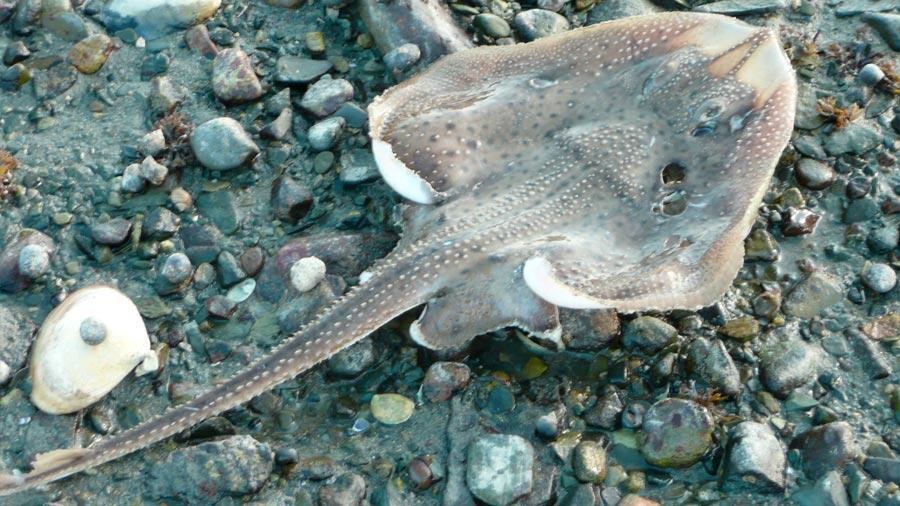A study by the University of East Anglia (UK) and Dalhousie University in Canada, has revealed that some species of fish are adapting to environmental changes to survive them without going through a significant genetic evolution. This involves the rapid appearance in them of a large number of physical and functional adaptations that allow it to cope with their environment.
Some species of fish are adapting to environmental changes to survive them without going through a significant genetic evolution, it revealed a study by the University of East Anglia (UK) and Dalhousie University in Canada. This assumes that the species threatened by climate change may find ways to adapt much faster than through changes in DNA.
Researchers studied an animal known as Leucoraja ocellata, in waters approximately 7,000 years old and significantly warmer than those living in other varieties of the same species.
and They noted that the Leucoraja ocellata analyzed a large number of physical and functional adaptations that allow it to cope with a significantly different set of environmental conditions of their habitat shallow and warm.
According to researchers, this type of adaptation is due to epigenetic changes caused by the modification of gene expression in which the DNA instructions become a functional product, ie proteins.
Rapid changes in gene, independent expression of changes in the DNA sequence, may allow rapid modification of the biological characteristics and enable a form of rapid adaptation, the study authors explained. This may be vital for the future survival of sharks and rays, to future climate changes, they add.
The secret of survival
The Leucoraja ocellata was the species chosen for this research because, despite their low reproductive performance and times long maturation (features that makes it vulnerable to environmental changes), this species stood 150 million years and two mass extinctions.
The scientists studied two populations of particular Leucoraja ocellata Atlantic Canada: an endemic population of endangered southern Gulf of St. Lawrence, and a large population of Nova Scotia. In the first zone, the water has more high summer temperatures 10 ° C in the second.
South of the Gulf of St. Lawrence the Leucoraja ocellata reduced body size dramatically, by 45 percent compared with those of the other population, and has a period of significantly shorter life, with a time of more rapid maturation .
The investigation of this ocellata genes revealed thousands of miniaturized Leucoraja changes (about 3000 600) in gene expression with respect to the other copies. According to scientists, this could be because the species has been able to adapt to shallower and warmer waters and the challenges that these conditions lead.











